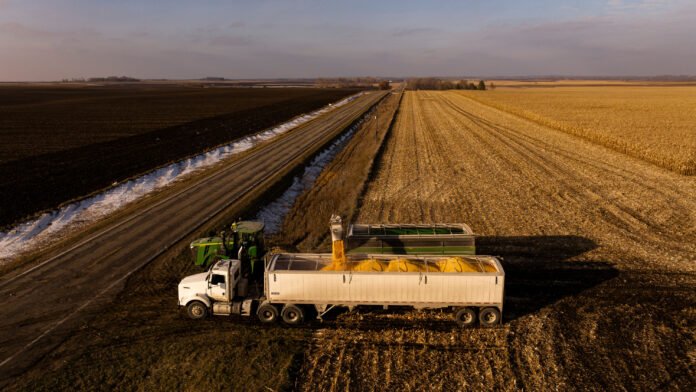U.S. farmers demand the right to repair their own farm equipment amid rising costs and growing frustrations. However, restrictions prevent them from fixing tractors and machinery themselves. Consequently, farmers face high repair bills and long delays, which hurt productivity.
Virginia farmer John Boyd Jr. explained that a diagnostic trouble code can shut down his tractor until a technician arrives. Meanwhile, scheduling a service appointment often takes weeks, wasting valuable time in the field. Farmers argue that many issues are simple and within their skill to fix.
Boyd said, “We need access to technology and the ability to repair our equipment. Money is tight, and these rules slow us down.” Therefore, without repair access, farmers risk voiding warranties, paying large fees, or losing workdays. Appointments for simple repairs can cost up to $1,000, adding financial strain.
Reports estimate U.S. farmers lose billions annually due to tractor downtime and excessive repair costs caused by reliance on dealerships. As a result, these losses highlight the critical need for reform and timely access to diagnostic tools. Boyd emphasized that equipment ownership should give farmers the right to repair. “If we buy it, we should fix it ourselves without waiting weeks,” he said.
The Agricultural Right to Repair Act seeks to give farmers and independent repair shops access to necessary tools. Advocates argue this reform could reduce repair costs and improve efficiency across the farming sector. Meanwhile, the Federal Trade Commission has filed lawsuits against manufacturers accused of limiting repair options and raising costs unfairly.
John Deere introduced Operations Center PRO Service to provide diagnostic tools and remote code access. Pricing starts at $195 per machine annually, with higher fees for fleets and service businesses. Additionally, the company says the service supports customer self-repair and enhances machine ownership experiences.
Furthermore, the American Farm Bureau Federation and John Deere signed an agreement to improve access to repair tools for farmers and independent mechanics. This collaboration aims to reduce wait times and empower farmers to maintain equipment on their own.
U.S. farmers repair initiatives continue to gain support as industry pressure grows. Therefore, advocates stress that timely repairs and cost control are essential for farm sustainability. Farmers insist they need fair access to tools and information to protect their businesses.
In summary, U.S. farmers push to repair farm equipment to save money and reduce downtime. Restrictive rules force costly delays, and reform efforts aim to empower farmers with diagnostic tools.
For more business updates, visit DC Brief.


